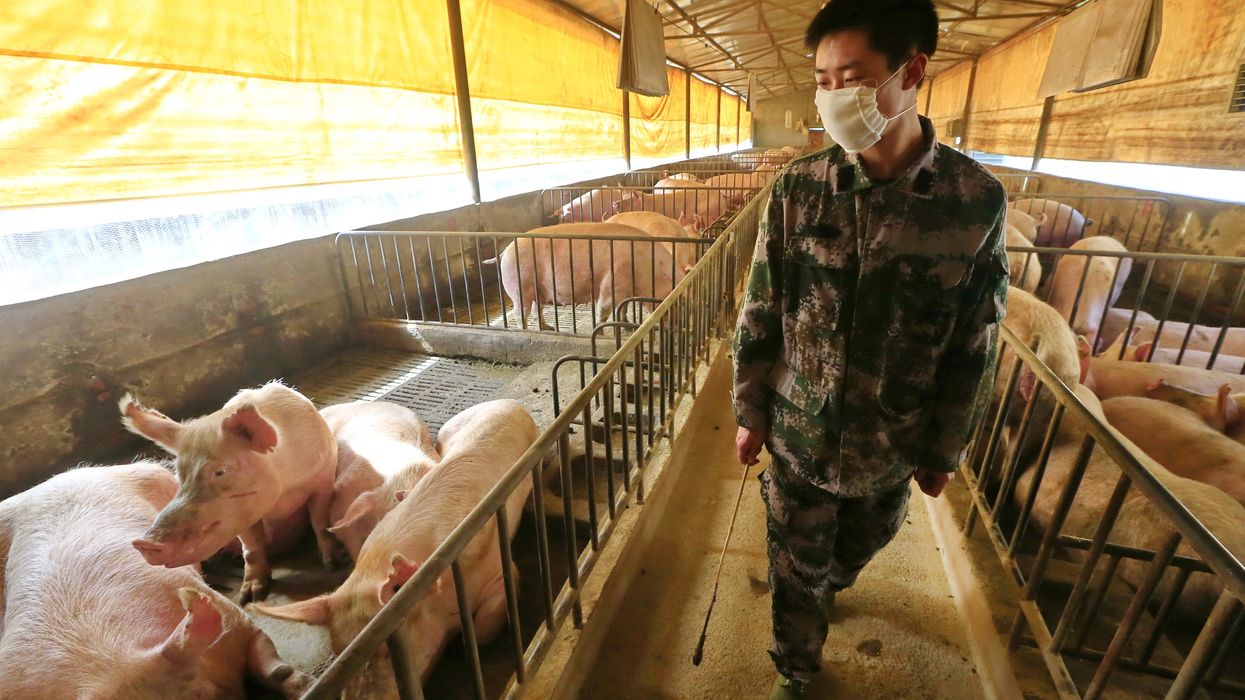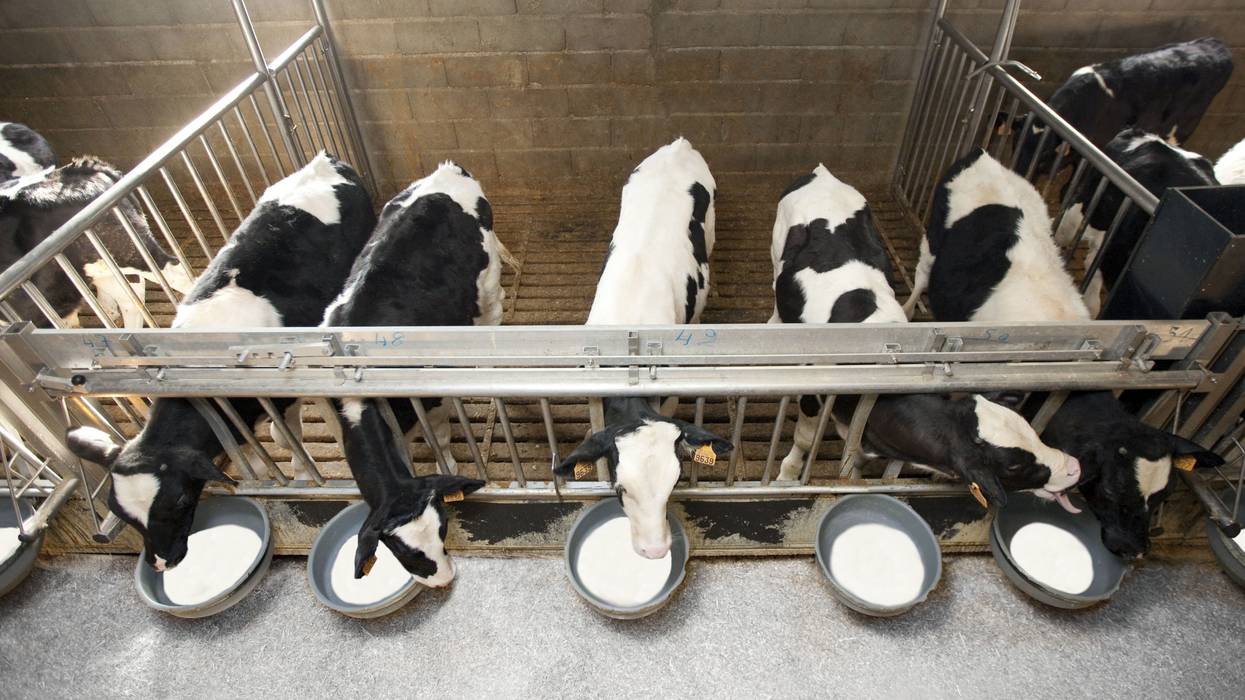The $2 Billion Question: Is World Bank’s IFC Enabling Environmental Damage?
The troubling question isn't whether IFC has environmental policies. It does; the question is whether these policies mean anything when clients consistently fail to comply and the public can't verify whether promised improvements ever materialize.
When the International Finance Corporation, or IFC—the World Bank's private-sector lending arm—invests in developing countries, it promises to uphold rigorous environmental safeguards. But our new analysis of $2 billion in livestock investments reveals an alarming gap between policy and practice that should concern anyone who cares about climate change, biodiversity loss, and environmental accountability.
Between 2020 and 2025, the IFC pumped nearly $2 billion into 38 industrial meat, dairy, and feed projects across developing countries. These investments expanded factory farming operations at a time when scientific consensus highlights the urgency of transitioning away from industrial livestock production to protect both people and planet.
The troubling question isn't whether IFC has environmental policies. It does—robust ones, in fact, that 56 other development banks and 130 financial institutions use as benchmarks. The question is whether these policies mean anything when clients consistently fail to comply and the public can't verify whether promised improvements ever materialize.
The Compliance Crisis
Our latest report, Unsustainable Investment Part 2, analyzed publicly disclosed environmental risk assessment summaries for all 38 projects, evaluating whether IFC clients adhered to the bank's own requirements for managing biodiversity loss, pollution, and resource use. The findings are sobering.
On biodiversity, most projects offered superficial habitat assessments without the detailed analysis needed to identify critical or natural habitats. Not a single project demonstrated deliberate avoidance of high-value ecosystems—the most important step in preventing irreversible damage. Out of 10 projects facing supply-chain risks from habitat conversion, only 2 reported plans to establish traceability and transition away from destructive suppliers. This matters because industrial livestock threatens over 21,000 species and is the primary driver of deforestation globally.
Without transparent, ongoing disclosure, environmental safeguards become little more than paperwork exercises.
For pollution, the gaps were equally stark. Only one project assessed both ambient conditions and cumulative impacts as required. A few projects also reported exceeding national and international standards for air emissions and wastewater discharge at the time of approval. While many promised future improvements, there's no public evidence these promises were kept. Meanwhile, 29 projects provided no reporting whatsoever on solid waste management compliance—a glaring gap in transparency.
On resource use, the patterns continued. Only one project applied the full water use reduction hierarchy, with most reporting no evidence of even attempting to avoid unnecessary water consumption. This inefficiency is staggering: Industrial livestock uses 33-40% of agriculture's water to produce just 18% of the world's calories.
These findings build on our first Unsustainable Investment report examining client adherence to climate change related requirements. The gaps in adherence to disclosure and mitigation requirements were significant—despite IFC's commitment to align 100% of new investments with the Paris Agreement starting June 2026. For disclosure, while 68% of clients disclosed emissions, the reporting was highly inconsistent. Some reported only Scope 1 or Scope 2; others aggregated both scopes when they should have been separated. For mitigation, over 60% of projects failed to reduce emissions intensity below national averages. And zero projects—out of all 38—managed physical climate risks in their supply chains, despite industrial livestock's extreme vulnerability to climate change.
The Transparency Problem
Perhaps the most concerning discovery is what we couldn't find: evidence of what happens after approval.
IFC's Environmental and Social Action Plans outline corrective measures that clients legally commit to implement over time. Many projects included plans to install pollution controls, improve resource efficiency, or enhance biodiversity management. But IFC doesn't systematically report whether these measures were actually implemented or whether they proved effective.
This absence of verification creates a dangerous accountability vacuum. Without transparent, ongoing disclosure, environmental safeguards become little more than paperwork exercises—compliance theater that manages reputational risk rather than environmental impact.
The Systemic Stakes
This matters far beyond IFC's portfolio. As the world's largest development finance institution focused on emerging economies, IFC functions as a standard setter. When IFC finances industrial livestock expansion despite weak compliance with environmental requirements, it sends a signal to global markets that such investments are "sustainable"—even when evidence suggests otherwise.
Consider the context: Industrial livestock contributes up to 20% of global greenhouse gas emissions, occupies 70% of agricultural land, and drives the planetary boundary transgressions that scientists warn threaten Earth's capacity to support human civilization. The World Bank's own 2024 report, Recipe for a Livable Planet, acknowledges that "to protect our planet, we need to transform the way we produce and consume food."
Yet IFC continues to invest billions in expanding the very systems the World Bank identifies as unsustainable. Civil society organizations have repeatedly documented environmental and social harms from IFC-financed factory farms in Ecuador, Brazil, China, and Mongolia—harm that occurs despite IFC's safeguards being applied.
A Path Forward
This isn't an argument against development finance. It's a call for development finance that actually delivers sustainable development.
IFC must fundamentally reassess whether industrial livestock expansion is compatible with its mission. The institution should redirect financing toward food production systems that are demonstrably sustainable—agroecological approaches, diversified farming systems, and plant-based proteins that can deliver food security without exacerbating environmental crises.
Equally urgent: IFC must mandate full, transparent disclosure of environmental compliance throughout project lifecycles—not just at approval. Independent verification and meaningful consequences for non-compliance must replace the current honor system. Without enforcement, the world's most influential environmental safeguards are effectively optional.
Billions in public development finance continue flowing to industrial operations that drive climate change, biodiversity collapse, pollution, and resource depletion.
The stakes extend beyond any single institution. With IFC's president announcing plans to double annual agribusiness investments to $9 billion by 2030, and the Paris Agreement alignment deadline now extended to June 2026, the window for course correction is rapidly closing.
As 130 financial institutions benchmark their own environmental standards against IFC's Performance Standards, the compliance failures we've documented likely exist throughout the development finance sector. Systemic problems require systemic solutions.
The Bottom Line
The evidence is clear: IFC's environmental safeguards are robust on paper but weakened by inconsistent client adherence, limited transparency, and absent enforcement. The current approach manages compliance risk rather than environmental impact—a fundamental misalignment with both IFC's stated mission and the urgent imperatives of our environmental moment.
Seven of nine planetary boundaries have already been breached. The Earth system is under unprecedented stress. Yet billions in public development finance continue flowing to industrial operations that drive climate change, biodiversity collapse, pollution, and resource depletion.
The question isn't whether IFC can afford to change course. It's whether we can afford for it not to.


